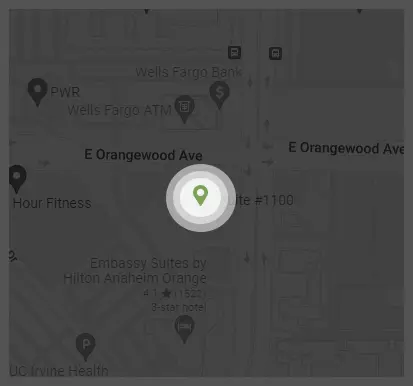In a Divorce, Will You Get Everything That is Rightfully Yours?
If you are divorcing in Southern California, you will need an Orange County divorce lawyer, and you will also have to make some hard choices. Who gets the house? Who gets the children? How should the marital assets, properties, and debts be divided?
What should divorcing spouses in California know about the division of assets and properties in a divorce proceeding? What assets can you protect? How can you make sure you receive what is rightfully yours? And how will an Orange County asset protection attorney help you?
What is Required for a Divorce in California?
To divorce in California, a married person is not required to prove his or her spouse is at fault or in any way responsible for the divorce. Spouses may seek a divorce solely because of irreconcilable differences.
The only legal requirement for a divorce in California is residency. Before filing divorce papers, at least one of the spouses must be a California resident for six months and a resident for three months of the county where the divorce petition is filed.
In some cases, a California divorce can be finalized in as little as six months, but in other cases, and especially if one of the spouses remains resolutely uncooperative, or if substantial assets are in dispute, a divorce in this state may take more than a year.
How Are Assets Divided and Distributed in a California Divorce?
Divorcing couples who can reach private agreements about children, assets, and alimony can avoid a great deal of aggravation and save both time and money. It is always better when spouses can reach their own agreements instead of letting the court make – and impose – those decisions.
In California, properties and assets acquired by either spouse during the marriage are usually classified as marital property. Properties and assets owned by one spouse prior to the marriage are non-marital property. In a divorce, the non-marital property stays with its original owner.
California is a community property state. If divorcing spouses can’t agree on the division of marital assets, a court will usually split the assets fifty-fifty. Liquidating the marital property usually isn’t necessary, but the divorcing spouses must receive assets of “equal” value.
How Can You Protect Your Assets?
There are several ways to protect your personal assets in a divorce. However, protecting assets does not mean hiding them from your spouse or from the court. Rather, it means properly designating your non-marital assets to ensure a just and fair divorce settlement.
A prenuptial agreement protects assets and properties by deciding in advance how those assets and properties will be classified in a divorce. Assets and properties that would be classified as marital property by a court may be designated as non-marital property in a prenuptial agreement.
Postnuptial agreements provide some of the same protections, but a postnuptial agreement may face more legal scrutiny. If you establish a postnuptial agreement, have it prepared by an Orange County family law attorney who can ensure that your postnuptial agreement will be enforceable.
Additionally, inheritances and personal gifts that are received by only one spouse during the course of the marriage are not generally considered marital property and are not usually divided in a divorce proceeding.
Avoid Commingling Your Assets
Personal, non-marital assets can be classified as marital property if those assets become so mixed with the marital assets that the non-marital portion cannot be separated from the marital portion. If you cannot prove that an asset is non-marital, the entire asset may be divided equally.
Establish a separate bank account for monetary gifts or inheritances to prevent commingling. This is the easiest way to avoid commingling, and if you divorce, it’s the easiest way to prove that the assets are non-marital.
As soon as you know that you are divorcing, take an inventory of your assets and determine the ownership status of any properties. A complete inventory should tell you which assets you believe are marital, which assets you believe are non-marital, and what each asset may be worth.
Do You Own A Business? Do You Own Real Estate?
If you are a business owner, you will want to protect your business in a divorce. Depending on the details, if you started up the business during the marriage, an Orange County divorce lawyer may nevertheless convince the court that the business is non-marital rather than marital property.
Property values fluctuate, so disputes over the value of real estate are common in California divorces. Choices must be made – by the spouses or by the court – about whether properties should be liquidated or whether one spouse may keep a property by compensating the other.
Disputes over businesses and real estate frequently complicate California divorce proceedings, but these are not the only types of properties that can complicate a divorce. Even the family dog can become the subject of a property dispute.
Full Financial Disclosure is Required for Both Spouses
In the State of California, spouses in divorce proceedings must formally disclose their assets, incomes, expenses, and debts to the court. Everything that has value must be included. The failure to make a full financial disclosure in a divorce proceeding is against the law in this state.
Financial disclosure enables the division of assets and properties by providing the court with an accurate picture of each spouse’s current financial status. An Orange County asset protection attorney will help you ensure that your disclosure forms are accurate and complete.
Choose the Law Office of Patrick O’Kennedy
The Law Office of Patrick O’Kennedy provides aggressive, effective representation to those who are divorcing in Southern California. Along with the sound legal advice you will receive from attorney Patrick O’Kennedy, your divorce will be handled with sensitivity and discretion.
With more than two decades of family law experience, attorney Patrick O’Kennedy resolves the most complicated asset disputes. He also handles child support and child custody, cases that involve restraining orders, and the enforcement and modification of divorce-related court orders.
If you are divorcing in Southern California, and if you have assets and properties that need protection, or if you need to learn more about divorce, schedule a legal consultation promptly. Call 714-701-6356, and put the Law Office of Patrick O’Kennedy to work on your behalf.








